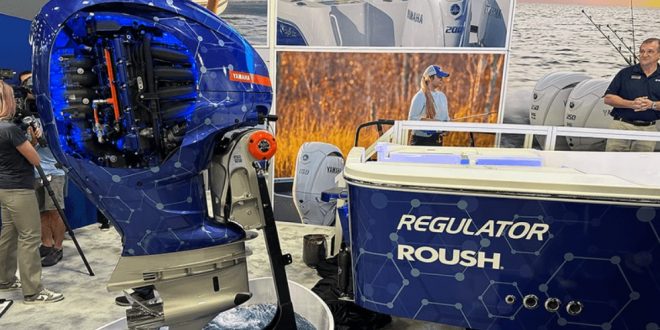Yamaha Engine, a large manufacturer, has shown a prototype of a hydrogen-powered outboard engine, which they claim is the first of its kind in the world, designed for propelling motorboats.
The hydrogen-powered engine shown at the 2024 Miami Boat Show is a product of a partnership between Yamaha and engineering company Roush. It aligns with the corporation’s objectives to achieve carbon neutrality.
Yamaha is actively investigating various options to reach carbon neutrality. They have set goals to have their operations carbon neutral by 2035 and their goods carbon neutral by 2050. Success in the maritime industry requires using a strategy that combines many solutions. “Hydrogen is considered a feasible approach to achieving these objectives,” said Ben Speciale, President of Yamaha U.S. Marine Business Unit, in a news statement.
Yamaha aims to be a pioneer in this field and urges other companies in the maritime sector to participate in developing infrastructure and new policies for innovations.
Although a promising concept and prototype, its ability to withstand a sea environment has yet to be determined, with testing scheduled for this summer.
“Without seeking a new power source for boats, we will not discover one.” Innovation starts with inquiry. Joan Maxwell said that while innovation may cause some anxiety, ultimately it leads to positive outcomes. In the future, if our expectations are confirmed, it is likely that we will build boat hulls to accommodate hydrogen fuel tanks.
 Tech Gadget Central Latest Tech News and Reviews
Tech Gadget Central Latest Tech News and Reviews




